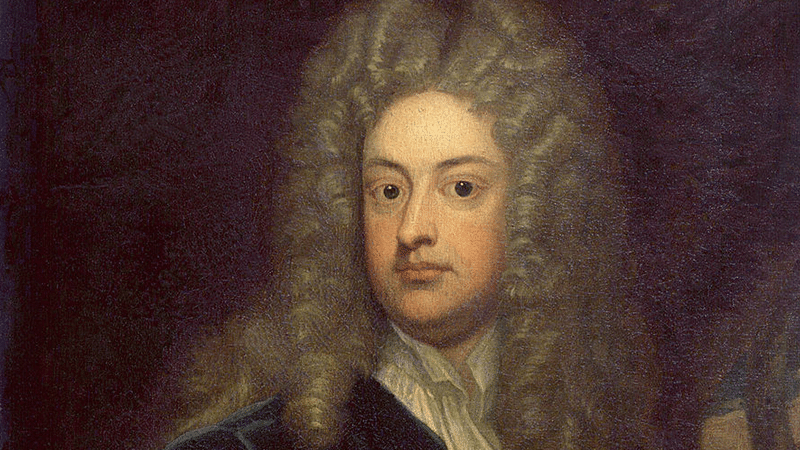Wisdom for dark days from the founder of The Spectator


by Dr Sharon James
A strong patriot, his epic poem celebrating the victory at Blenheim was hugely popular (and a catalyst for his rapid promotion). A great lover of freedom, his play Cato inspired many in Colonial America (Patrick Henry’s famous phrase ‘Give me liberty or give me death!’ seems to have been lifted almost direct from Cato).
Addison was also co-editor and leading contributor to the first issues of The Spectator. In March 1711, assuming the persona of ‘Mr Spectator’, he wrote the first number. In succeeding ‘Numbers’ he depicted a series of characters whose responses to everyday situations offered wisdom for life in a light and engaging way, with plenty of humour thrown into the mix. This daily paper became the must read on both sides of the Atlantic during the short time it was issued (555 Numbers from 1711-1712, 80 Numbers in 1714). For years afterwards it continued to be popular in bound editions. From entertainment, literature and fashion to matters of morality, life and death – all current issues of concern were lifted up to examination. The title would be revived a century later for the new weekly Spectator.
‘Moments of joy’
Few today have heard of Joseph Addison. But across the world, translated into various languages, in hundreds of different hymnals, and tens of thousands of churches, some of the poems he wrote for The Spectator are still sung as hymns. They pick up themes such as gratitude, wonder, humility, trust and hope, all of which, Addison believed, could help readers navigate the challenges of life.
Addison himself was a consistently cheerful character. Gratitude was the theme of Number 453 (9 August 1712). He concluded his essay with a 13-stanza poem: Thanksgiving for God’s Particular Providence. He traced the mercies that brought him safely into this world, a mother’s loving care, deliverance through times of danger, illness, temptation, the gift of a cheerful heart and confidence that joy would extend beyond the grave. Five or six stanzas are still popular as a hymn which has appeared in 929 hymnals. It begins:
When all thy mercies, O my God,
My rising soul surveys;
Transported with the view, I’m lost
In wonder, love, and praise.
In dark days we look for ‘moments of joy’. Right now, dark days are drawing out countless gestures of kindness, as well as acts of real sacrifice. Giving thanks for these (and we have many means of communicating with others even when locked down) creates connections which bring joy. Days of self-isolation provide time to remember others we might reach out to, if only to thank for kindnesses past or present. Addison believed that all this human kindness reflects the One who created us: ‘If gratitude is due from man to man, how much more from man to his Maker?’ he asked.
Wonder and humility
The themes of wonder and humility punctuate Number 465 (23 August 1712). The Proper means of strengthening and confirming faith in the mind of man argues that the glory of the cosmos should fill us with wonder, and the grandeur of nature should fill us with humility. Before the power of storms, or the inexorable spread of disease, how frail we are! Addison concluded this essay with a poem, Of the Glory of God in the Starry Heavens, beginning:
The spacious firmament on high,
With all the blue ethereal sky,
And spangled heav’ns, a shining frame,
Their great Original proclaim
This has appeared in 727 hymnals (and in the Oxford Book of English Verse), and is often sung to the tune ‘Creation’ (The Heavens Are Telling from The Creation by Franz Joseph Haydn).
The glories of the natural world provide endless joy. Right now, even when confined to our homes, technology offers access to the wonders to be found in every continent, in the oceans, and in space. The riches of human culture are likewise available at the touch of a screen. So much to be thankful for! So much to praise God for!
Trust and hope
Next, the theme of trust. Number 489 (20 September 1712) was entitled Greatness. Addison focussed on the power of the ocean. As a young man, taking the customary ‘Grand Tour’ of Europe, he had been caught in a terrifying storm on the Mediterranean. All on board the ship had expected to die.
Fellow travellers had been amazed at Addison’s calm demeanour as he found comfort in prayer. So Addison drew on his memories of that storm in writing the poem, How are thy servants blest, O Lord for that Number. It has been published in 305 hymnals. Addison had felt ‘blest’ in knowing that God controls the wind and the waves. He had confidence in both life and death, and wanted his readers to have that same confidence.
Finally, the theme of hope. Number 513 (18 October 1712) took the subject of Sickness. Addison was realistic about the universality of human evil. He was acutely aware of his own guilt. He believed that the prospect of judgement after death should evoke fear. But he wanted readers to find hope in God’s free offer of redemption through Christ, and in the certainty of resurrection. The poem with which he concluded this issue, When rising from the bed of death, has been published in 249 hymnals.
Seven years later, in 1719, aged 47, Addison was struck down with severe breathlessness and illness. As a young man, he had remained calm in the face of almost certain death at sea. Once again he trusted the God who, he believed, would raise him from death to eternal life. Three years earlier he had married Charlotte, Dowager Countess of Warwick. His new stepson was a selfish and reckless youth. Addison invited the young man to his death bed to see how a Christian believer could die with joy and hope.
Three hundred years later, the account of Addison’s life points to the joy that comes from knowing that a loving heavenly Father is with his people all the way from birth to death. And Addison’s writings remind us that the very darkest of days can be lightened with an attitude of gratitude, wonder, humility, trust and hope.
Dr Sharon James is a Social Policy Analyst at The Christian Institute
